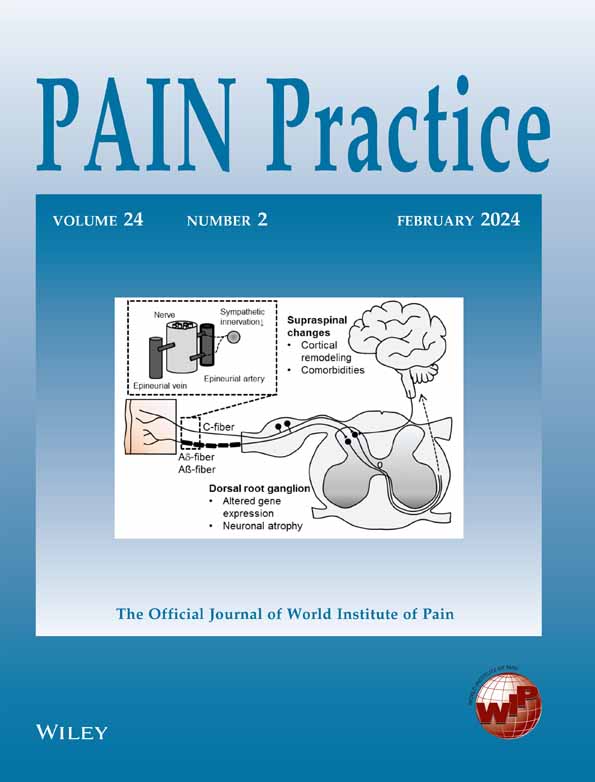Effect of spinal cord stimulation on quality of life and opioid consumption in patients with failed back surgery syndrome
Abstract
Background
Failed back surgery syndrome (FBSS) is a constellation of conditions occurring after spine surgeries, characterized by the presence of persistent or recurring low back pain that has a significant impact on patients' quality of life. Neuromodulation in the form of Spinal Cord Stimulation (SCS) is considered an indispensable treatment modality in the management of certain chronic pain conditions and it is showing good results for improvement in pain scores and functional capacity of the FBSS patients.
Objectives
To assess the change in pain scores, quality of life, and opioid medication intake as an outcome of neuromodulation procedures performed on patients diagnosed with failed back surgery syndrome, and to detect the post-procedure complications.
Methods
A prospective observational study was conducted at two university hospitals in Egypt and the U.S.A. during the period from September 2019 to August 2021 for patients who underwent spinal cord stimulation procedures for FBSS with follow-up period of at least 1 year. Patients who are 18 years old or older diagnosed with FBSS for more than 6 months and treated with spinal cord stimulation with successful trials during this time frame were included in the study.
Results
Thirty-four patients were included in this study who had successful SCS trials and underwent permanent implantation of SCS devices with post-procedure follow-up period of 12 months. Patients showed a median pain numerical rating scale (NRS) of 7/10 at baseline with a median NRS of 4/10 through the follow-up period. Basic mobility and daily activity scores assessed by activity measure of post-acute care (AM-PAC) showed significant improvement from the mean of 16.87 ± 2.74 at baseline to a mean of 19.97 ± 2.93 through follow-up. In addition, there was a reduction in opioid medication usage. Post-procedure complications was of low percentage with the most detected were battery dysfunction in 7 patients and pocket pain in 6 patients. Reoperation was needed in 13 patients with 4 needed just revision and 9 patients required a complete removal of the device.
Conclusion
Spinal cord stimulation is an effective modality of treatment for cases of failed back surgery syndrome with a statistically significant reduction in pain scores and a significant improvement in quality of life. Also, it achieves a recognizable reduction in opioid analgesic medications, with a reliable safety profile as detected with the recorded post-procedure complications. However, randomized controlled trials with more patients and long-term follow-up are highly recommended.
CONFLICT OF INTEREST STATEMENT
The authors declared that there is no conflict.
Open Research
DATA AVAILABILITY STATEMENT
The data that support the findings of this study are available on request from the corresponding author. The data are not publicly available due to privacy or ethical restrictions.




